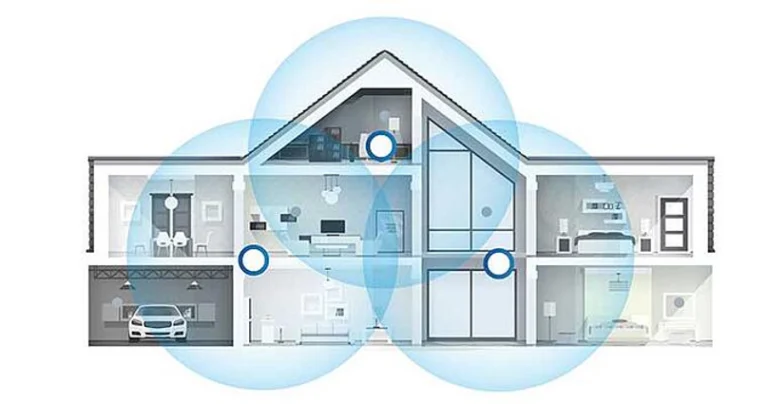How often are you using the internet in your house? What devices are connected to your internet? When everyone is online does everything seem to slow down? Do you have gamers in your home? Is someone regularly streaming movies or TV shows? We’re also still in a pandemic, so are you working from home some or all of the time? Are your kids still occasionally doing remote learning? You may need to consider a network upgrade.
The average internet speed is between 25-50 Mbps. Mbps stands for megabits per second, not megabytes or MBps. Mbps is just how internet speed is measured. Do you know the recommended speeds of the streaming platforms you use? Netflix and Disney+ recommend 5 Mbps for HD but 25 Mbps for 4K UHD. Twitch recommends 4-6 Mbps to watch their live streams. For gaming, it depends on what you’re doing. If you’re playing with friends or competitively, at least 20 Mbps is ideal. And, obviously, the faster the internet, the faster games download.
So, if we do some math. Let’s say your internet speed is 50 Mbps. One kid is playing a game online with their friends, so they’re using about 20 Mbps. Your other kid is watching a 4K Disney+ movie, so they’re using around 25 Mbps. That is already 45 Mbps. Add a couple of phones to the internet, a tablet, or another TV, and someone is either going to be lagging or buffering. It’s a bad time for everyone now.
There are a few resolves instead of getting an entire network. They include connecting directly to the router with an ethernet cord, downloading movies and TVs from streaming sites to watch later (offline), or taking turns on the internet. These might not all be practical but they work.
Now, if you’re interested in beefing up your internet, let’s talk about it.

One of our favorite types of networks is a mesh network. A mesh network uses a “base” node that connects to your modem using an ethernet cord. It then shares that internet connection to other nodes placed around the building. They’re different (and much better) than a wifi extender because they’re all the same internet. What I mean is when you’re walking around the house and you’re not close enough for a strong connection on NETGEAR 5G, for example, because you’re closer to the extender, then you need to change your connection to NETGEAR 5G-EXT. You’ll have to keep doing that depending on if you’re closer to the main router or the extender. It gets annoying. However, a mesh network is all the same internet and automatically changes without you even noticing.
Mesh networks are also great because they’re smart. If the main node sees another node is getting congested and may slow down, it’ll route a connection to another node. One kid’s gaming console will connect to Node 1 and another kid’s streaming will connect to Node 2. It’ll be like they’re on their own internet with how fast it stays.
A mesh network can give your entire home coverage, eliminating dead spots. It’s self-configuring, so your work setting it up and maintaining it is incredibly easy. It’s also very easy to add and remove nodes. A network can cost anywhere between a few hundred dollars up to thousands. Mesh nodes are not necessarily cheap, but they’re the best option when it comes to fixing seemingly slow internet. Not everyone can afford or has the option to upgrade internet speeds through their provider. Even if you’re in an area with internet speeds of 1000 Mbps, a mesh network can be necessary to alleviate congestion.
Don’t let lousy internet speeds keep you from having a good time in your home (or office).
If you’re interested in upgrading your internet or network, reach out to us, and let’s chat. If you’re looking for more information, you can check out our Networks and Wifi service page.
